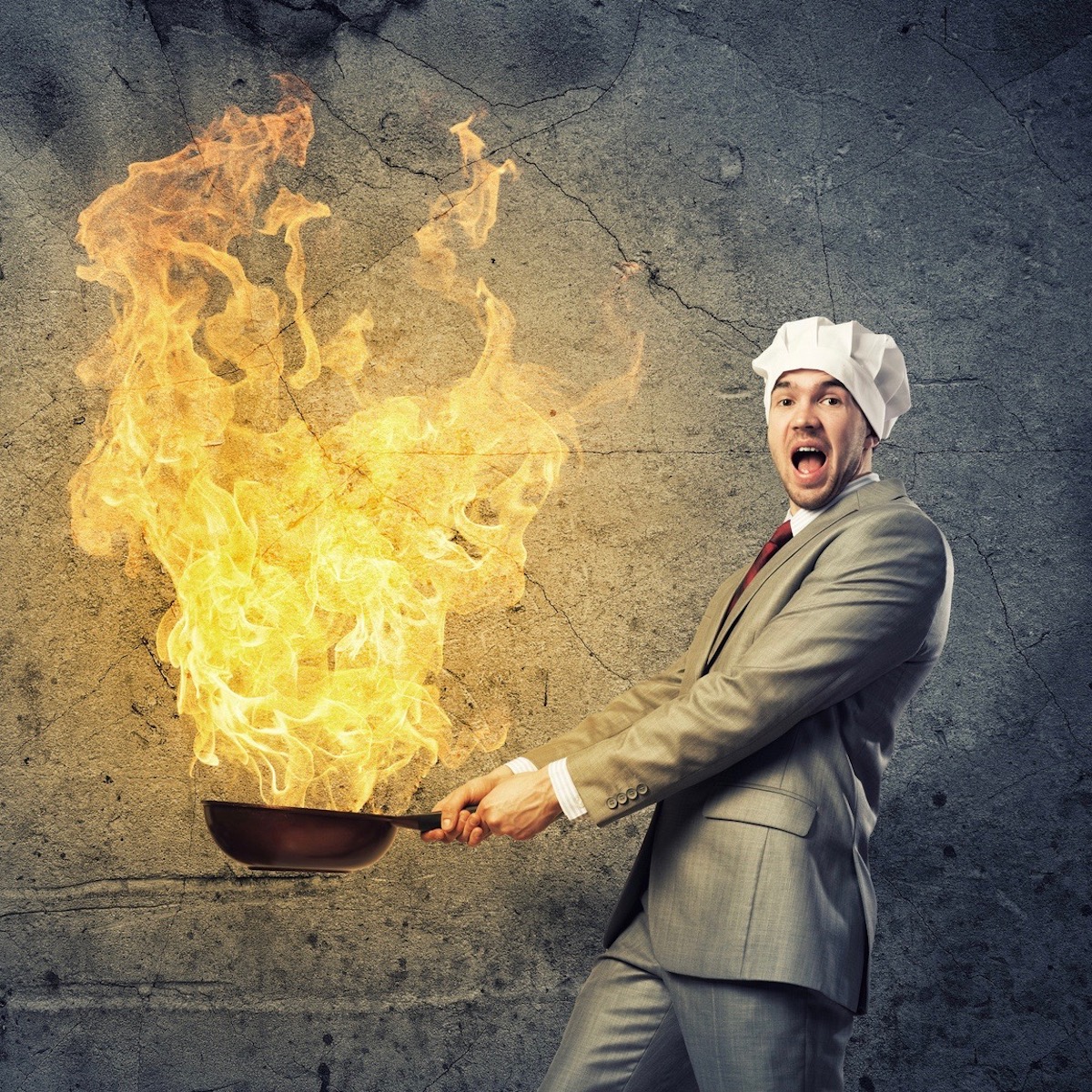Why Do Chefs Have to Work Such Long Hours?
In the bustling world of culinary arts, a chef’s life is both exhilarating and demanding. Behind every beautifully plated dish and meticulously crafted menu lies a story of long hours and relentless dedication.
Chefs often work well beyond the typical 9-to-5 schedule, with shifts stretching late into the night and early into the morning. The fast-paced environment of a professional kitchen requires skill, creativity, endurance, and resilience.
This post delves into the reality of a chef’s work hours, shedding light on the physical and emotional demands of the profession. From early prep work, before the restaurant opens to late-night clean-ups and preparation for the next day, the hours are long, and the work is intense. Chefs often sacrifice personal time and sleep to ensure every service is seamless and every dish is perfect.
I’ll explore the reasons behind these demanding schedules, their impact on personal life, and how chefs manage the high-pressure kitchen environment. Whether you’re considering a culinary career or simply curious about the inner workings of a professional kitchen, understanding the commitment required can provide valuable insights into this dynamic and ultimately rewarding field.
The “Real” Workday
Chefs and cooks often work long hours for several reasons, reflecting the unique demands and high-paced nature of the culinary industry:
- Preparation and Planning: Preparing for service begins long before the restaurant opens. Chefs and cooks spend hours sourcing ingredients, planning menus, and prepping food to ensure everything is ready for the busy service period. This includes marinating, chopping, and assembling dishes, which can be time-consuming.
- Service Hours: Restaurants and kitchens typically have extended hours to accommodate various meal times. Chefs and cooks must be present during peak times, including lunch, dinner, and sometimes late-night services, to ensure a smooth operation and to handle the rush of orders.
- Maintaining Quality: To maintain high food quality standards, chefs must be hands-on throughout the service. They oversee every dish’s cooking, plating, and final touches, requiring their constant presence and attention to detail.
- Cleaning and Maintenance: After service, chefs and cooks are responsible for cleaning the kitchen, including washing dishes, sanitizing surfaces, and maintaining equipment. This is essential for health and safety standards and can add several additional hours to their workday.
- Administrative Duties: Besides cooking, chefs often handle administrative tasks such as ordering supplies, managing staff, and balancing budgets. These responsibilities require extra time outside of regular cooking hours.
- Menu Development and Training: Developing new recipes, experimenting with ingredients, and training new staff require time and effort. Chefs dedicate additional hours to ensure that the menu evolves and that the kitchen team is well-trained.
- High Pressure and Demands: A professional kitchen’s fast-paced and high-pressure environment demands quick thinking and adaptability. Chefs and cooks must be prepared to handle unexpected challenges, such as staffing issues or supply shortages, often requiring them to work longer hours to resolve problems.
The combination of these factors contributes to the long hours that chefs and cooks typically work, reflecting their commitment to delivering exceptional dining experiences and maintaining the efficiency of their kitchens.
Effect on Health
The demanding nature of a chef’s or cook’s work schedule can significantly impact their physical and mental health. Here are some of the challenges they face:
- Physical Strain: Long hours of standing, lifting heavy pots and pans, and working in a hot, fast-paced environment can lead to physical strain and musculoskeletal issues. Common problems include back pain, joint pain, and repetitive strain injuries from tasks like chopping or stirring.
- Stress and Burnout: The high-pressure environment of a kitchen, combined with long hours, can contribute to chronic stress and burnout. Chefs and cooks often face tight deadlines, high expectations, and a demanding pace, leading to mental fatigue and emotional exhaustion.
- Sleep Deprivation: Irregular and extended working hours can disrupt sleep patterns, leading to sleep deprivation. Lack of quality rest affects overall health, cognitive function, and mood.
- Nutritional Imbalances: Busy schedules can make it difficult for chefs to maintain a balanced diet. They might skip meals or rely on quick, unhealthy snacks, affecting their nutritional intake and overall well-being.
- Social and Family Impact: The demanding hours can interfere with personal relationships and social life, leading to feelings of isolation and impacting family dynamics. Time away from loved ones can contribute to emotional strain and reduced quality of life.
- Mental Health Challenges: The pressure to perform consistently at a high level can lead to mental health issues such as anxiety and depression. The intensity of the job and the high expectations can take a toll on emotional well-being.
Addressing these health challenges involves taking proactive measures, such as implementing proper ergonomics in the kitchen, managing stress through relaxation techniques or counseling, prioritizing nutrition, and finding ways to maintain a work-life balance. Awareness of these issues and employer support can also help mitigate the health impacts and improve the overall well-being of chefs and cooks.
Burnout
The burnout rate for chefs is notably high, reflecting the demanding nature of the profession. Estimates suggest that burnout rates in the culinary industry can range from 30% to 60%, depending on factors like work environment, job demands, and individual coping mechanisms.
Several factors contribute to the high burnout rate among chefs:
- Long Hours: The extended work hours and irregular schedules contribute significantly to burnout. Chefs often work 60-80 hours a week, including evenings, weekends, and holidays.
- High Pressure: A professional kitchen’s fast-paced and high-stress environment can lead to mental and emotional exhaustion. The pressure to meet high standards, manage a busy kitchen, and handle unexpected issues can be overwhelming.
- Physical Demands: The physical strain of long hours on their feet, lifting heavy items, and working in hot conditions contributes to physical fatigue and can lead to burnout.
- Low Pay and High Turnover: Despite the demanding nature of the job, many chefs face relatively low wages compared to the hours worked, which can lead to financial stress and job dissatisfaction. Additionally, high turnover rates in the industry can exacerbate workload and stress for the remaining staff.
- Limited Support: In some workplaces, there is limited support for mental health and well-being, which can leave chefs without adequate resources to cope with stress and burnout.
To reduce burnout in the culinary industry, efforts include promoting better work-life balance, improving working conditions, providing mental health support, and encouraging fair compensation and professional development. Recognizing and addressing these factors can help mitigate burnout and improve chefs’ overall job satisfaction.
So Why Do They Do It?
Despite the significant challenges and high burnout rates, many chefs continue to pursue and thrive in their profession for several compelling reasons:
- Passion for Cooking: A deep passion for food and cooking often drives chefs. The creative process of developing new recipes, experimenting with flavors, and crafting memorable dishes can be incredibly fulfilling and satisfying.
- Love for the Culinary Arts: Many chefs are drawn to the art and craft of cooking. The ability to transform simple ingredients into exquisite dishes and to continually refine their skills provides a sense of accomplishment and pride.
- Creativity and Expression: The culinary field offers a unique personal expression and creativity platform. Chefs often see their kitchen as a canvas on which to showcase their artistic vision through food.
- Camaraderie and Teamwork: The close-knit environment of a professional kitchen fosters strong relationships and a sense of camaraderie. The teamwork and mutual support among kitchen staff can be rewarding and create a sense of belonging.
- Guest Satisfaction: The joy of serving satisfied customers and receiving positive feedback is a powerful motivator. Many chefs find great satisfaction in knowing their work brings pleasure and enjoyment to others.
- Career Opportunities: The culinary industry offers diverse career opportunities, including roles in fine dining, catering, food media, and restaurant management. This variety can keep the profession exciting and full of potential for growth and advancement.
- Cultural Connection: For many chefs, cooking is a way to connect with cultural traditions, heritage, and family recipes. It can be a means of preserving and sharing culinary traditions with others.
- Innovation and Challenge: The constant evolution of food trends and techniques provides an ongoing challenge. Many chefs are motivated by the opportunity to innovate and push culinary boundaries.
Despite the demanding nature of the job, the combination of passion, creativity, and the rewards of making an impact through food can make the challenges worthwhile for those who choose to pursue a career in the culinary arts.
















11 Responses
Essentially Chefs only work to A) What they agree to or B) What they can physically manage. In my early years it was nothing for me to work 70hr plus weeks with no breaks during any given shift. Back then I was still earning my stripes and eager to rise through the ranks…..and at the same time unknowingly reinforcing a rather toxic career “standard” that is not only illegal but often unjust. Thesedays I avoid the kitchens that expect you to eat, sleep and breathe work 24/7 and devote more time to my family. Now, well into my 40’s, I’ve come to realise that my body just isn’t the same as it was 25 years ago. Despite having a vast skill base the fast paced action is better left to the younger ones coming through. Many “old school” Chefs I know now take positions that employ them for their ability to run a kitchen. They still work bloody hard but the super physical stuff is better left to the younger ones. The life of a Chef is hard….don’t be fooled thinking otherwise…….but in all fairness it’s provided a reliable and steady income for close to 3 decades. Having said that if my son ever comes up and tells me he wants to be a Chef I’m going to do all I can to convince him otherwise.
Thanks Chef for your comments about being a chef. I’m sure there are many of you who feel the same way. I would love to interview you and learn more about your career if you are interested. You have a keen knowledge for the industry.
Career Chef, I’m in very much agreement with you. I have just started a new job in which I am now working 50 plus hours a week minimum. I didn’t think I would have to ask that question. I work very hard and get amazing results. But I am also now in my 40’s and my body makes sure I know it. But, what do I do? I have to work, I have to have a paycheck. But how long will I be able to do it? I already know I’m having trouble with the cleanliness and the methods used (i.e. flour tortillas used for enchiladas. Soggy and gross) but now how do I even approach the subject of hours? I’m guessing I’m going to have to buckle down and face the music and work. Any ideas?
The reality is chefs work along of hours because owners are cheap . Yes many will say working long hours is Industry standard but the reality is just because you’re salary doesn’t mean unlimited hours of work. My pay check salary says 40hr. That’s what they get.
I love how it’s meant to be illegal to work those hours but somehow no one will police it. Why is that?
Owners of restuarants squeezes the last juices of ceative minds no matter what. When you are abused because of your passion to cook ..it is wrong. Working 17 hour shifts per day is just wrong. So getting away with it is wrong..but hey who is watching and who cares. The money is rollong in….
It is the environmental Health Agency responsibility to ‘Police’ it. Someone just needs to report it. There is a dedicated ‘Pay and Work Rights Help Line and Complaints’ that these things can be reported on.
I’m a line Chef for a large company and I work from 15 hours a day and only get one day off to see the family. I don’t get time to eat, sleep, even look after myself or even my own family. I stopped having a personal life because of work. I don’t have the energy to clean the house let alone the kitchen on a night. They are making me do an apprenticeship because it looks good for the company and I booked a weekend off to spend time with the family but know I had to work. How on Earth am I going to be able to do college course work, look after my family/my self and work at the same time. It is stupid.
People think being a chef is a good thing but it’s not and I don’t recommend it to anyone. I’m planning to change my career soon because I’ve had enough and I would like to see my loved ones. One day.
U r in a tight situation, Chloe, and I really feel bad about it. Like u, even I got into this industry by fluke and after year’s of toil, I am still struggling to find a job that pays decent and hrs are nominal. Just imagine working 16 hrs a day for opening a cruise ship. That’s what these employer’s do.
I have only worked in food service a few times and then only in fast food so was not aware of such an injustice to chefs in higher end restaurants. I do have a suggestion though. Maybe the most hungry top chefs and top chef wannabes could come together and start a chain of high end restaurants not only designed around perfect food and top notch service but working conditions for all employees tailored to maximize employee and familys health and we’ll being therefore increasing production and atmosphere at work which should trickle to every aspect of the business which should naturally promote the proliferation of the restaurant and increase profits. More money to the investors portfolio is what it all basicly boils down to anyway, right? Then top notch people in food service get to enjoy their talents with food and service without sacrificing family or personal health. Just an idea.
And do you really think working less hours will increase productivity ? If you work 60 hours instead of 40 and 20 of those are for free there is no way doing 40 you would improve productivity . Yes you would rest more and have a life and so maybe work harder when you have to , but the problem is companies expect you to work as hard even if you do 60 hours that’s why you gotta stop having a life cause you need to sleep to go work again . Then if you burn out and get tired and work less due to that then you will get fired and someone else will take the position and this way it’s cheaper and more productive for the owners than allowing chefs to actually have a life for a decent salary .